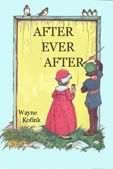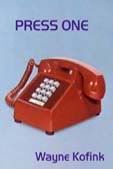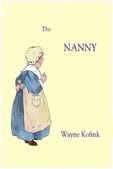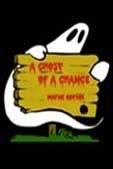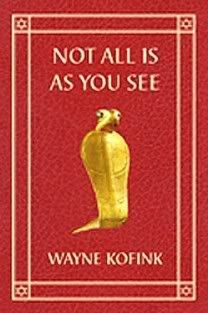
One of my favorite books is Herman Hesse’s last novelThe Glass Bead Game also issued as The Magister Ludi. It’s about some future age in which the province of Castalia is home to an order of intellectuals who run boarding schools for boys and play the Glass Bead Game. Exactly what the game is can’t be said, but it seems to be a complex competition that require the players to combine and synthesize ideas from various disciplines, for example music and logic. The protagonist, Joseph Knecht, becomes the Magister Ludi, the Master of the Glass Bead Game, but near the end of the story resigns as he struggles with the problems of a purely intellectual world that is totally oblivious to the real problems of life. He takes the job of a tutor to his friend’s son, but drowns a few days later bringing the story to an abrupt and unforseen end.
I suppose there is a good deal of Joseph Knecht in me as I revel in intellectual pursuits, but also feel the tension of the problems of the real world–like making sure there is a supply of toilet paper in the rest rooms at church. Not a major world problem unless you’re the one who finds the toilet paper dispenser empty at an inopportune moment. (By the way there is an irony here in that the German noun Knecht means “servant.”) And it also intrigues me that it is the Benedictine monk Father Jakobus who plants the notion in Knecht’s head that the Glass Bead Players are totally detached from the course of world event. He says the players “treat world history as a mathematician does mathematics, in which nothing but laws and formulas exist, no reality, no good and evil. No time, no yesterday, no tomorrow.” Hmm, I wonder if the Benedictine monks I know would say that about me?
 Maybe I wouldn’t fit into the Magister Ludi’s world at all for while Roman Catholicism sill remains in that world, Protestantism has disappeared. Of course, that is one of Herman Hesse’s little digs. He was the son of Protestant missionaries and studied at the Evangelical Theological Seminary in Maulbronn for a short while. Another twist: the seminary occupied Maulbronn Abbey which had been a Cistercian Monastery before the Reformation. The Cistercians are part of the great Benedictine monastic family.
Maybe I wouldn’t fit into the Magister Ludi’s world at all for while Roman Catholicism sill remains in that world, Protestantism has disappeared. Of course, that is one of Herman Hesse’s little digs. He was the son of Protestant missionaries and studied at the Evangelical Theological Seminary in Maulbronn for a short while. Another twist: the seminary occupied Maulbronn Abbey which had been a Cistercian Monastery before the Reformation. The Cistercians are part of the great Benedictine monastic family.Strange that Hesse was from the same part of Germany as my father’s family. In fact the seminary in Maulbron where Hesse studied was less than 60 miles from the University of Tubingen where my 11x great grandfather, Jakob Heerbrand had once been chancellor. Hesse’s grandfather, Hermann Gundert, had studied at Tubingen. In one respect I have no connection to Hesse or his worlds. Although people have said I’m crazy, I (unlike Hesse) was never in a mental institution in my teens. (I don’t think high school counts.)
 This stream of consciousness reflection started out as I played a glass bead game of my own. Among the dozens of books I bough recently in Chicago was a very fine, large volume titled The Chicago Architectural Club: Prelude to the Modern by Wilbert R. Hasbrouck. It is a very scholarly and artistic book. On p. 76 Hasbrouck disusses the proceedings of the Third Annual Banquet of the club on November 19, 1888. An account of the event published in the Inland Architect included a funny song that was sung to the tune of “Vive la Compaigne.” Here’s the beginning of the first stanza.
This stream of consciousness reflection started out as I played a glass bead game of my own. Among the dozens of books I bough recently in Chicago was a very fine, large volume titled The Chicago Architectural Club: Prelude to the Modern by Wilbert R. Hasbrouck. It is a very scholarly and artistic book. On p. 76 Hasbrouck disusses the proceedings of the Third Annual Banquet of the club on November 19, 1888. An account of the event published in the Inland Architect included a funny song that was sung to the tune of “Vive la Compaigne.” Here’s the beginning of the first stanza.In Chicago’s fair city
There’s buildings so pretty,
Designed by the boys of the C.A.S.C.
(C.A.S.C. is Chicago Architectural Sketch Club the organization’s original name.) It’s amusing, except this song could NOT have been sung to “Vive la Compaigne.” The meter is all wrong. However, I know for certain what the tune was: “Cockles and Mussels,” an Irish folk song. How do I know? Because this is the first stanza of that ditty:
In Dublin’s fair city
Where the girls are so pretty,
‘Twas there I first saw my sweet Molly Malone.
Any doubts?
How do I know this folk song? I learned in my first semester voice class. How did the error creep into the book? Did the author if the original article 121 years ago get it wrong? Or did Hasbrouck misinterpret something he read?
Of course 99.999% of people would probably think, “Who cares? What difference does it make.” I don’t know. I just find it interesting. Am I playing some version of the Glass Bead Game? One always walks a fine line in intellectual pursuits. Do they have to result in something of practical value or are they valuable in and of themselves. In philosophical terms, are they a means to an end or an end in themselves. Or maybe it’s a question of balance. If you live in an ivory tower you still have to take out the garbage or one day the tower will be full. On the other hand if you are a garbage man (oops, sanitation worker) you might find it enjoyable in your off-hours to read a book that has nothing to do with sanitary engineering.
It’s something to think about, like whether it’s worth your time to see if my blog is on this week and then spending precious time to read it.
Whether you play games or not, may the Lord bless you on your journey and greet you on your arrival.
Wayne
3956
Labels: Chicago Architectural Club, Glass Bead Game, Herman Hesse

